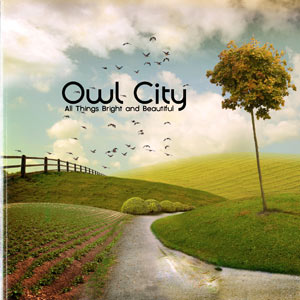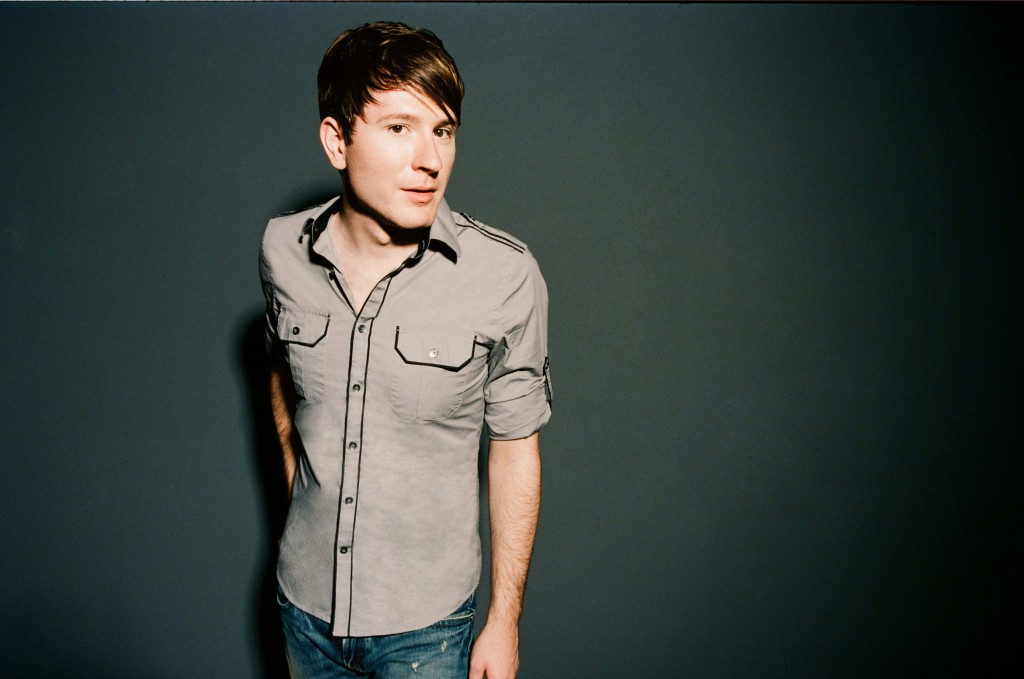Click “Like” to share with your friends!
A conversation with Owl City’s Adam Young, Part 2
In part one of the Whole Notes interview with Adam Young, we learned more about the platinum-selling artist’s faith. Today, he talks about the new music, some of his unique influences and how he deals with the critics:
Bonham: Was there a theme for the new record or maybe a mindset that you took into the recording of these songs?
 Young: Ultimately, I just kind of sat down before I wrote anything and said, “God, give me the songs you want me to write so I can record them and sing them back to You.” Beyond that, esthetically and tonally and what not, as far as nuance, I knew I wanted a bigger, more polished, airbrushed record—something a little bit older and wiser. I always forget how much work it takes one guy in a basement to make a record, but it really is something I’m so blessed to be doing. It’s the one thing in my life I’ve been remotely good at (laughs). It’s finally what I’ve been called to do and I just wanted to make sure it was genuine, heartfelt and very organic in the sense that I wasn’t writing this new record with any unhealthy regard to the last record which was way more successful than any of us expected. So I wanted to make sure I wasn’t writing this one for iTunes or for Billboard or for any of the charts. Beyond that, I let all other restrictions fall away.
Young: Ultimately, I just kind of sat down before I wrote anything and said, “God, give me the songs you want me to write so I can record them and sing them back to You.” Beyond that, esthetically and tonally and what not, as far as nuance, I knew I wanted a bigger, more polished, airbrushed record—something a little bit older and wiser. I always forget how much work it takes one guy in a basement to make a record, but it really is something I’m so blessed to be doing. It’s the one thing in my life I’ve been remotely good at (laughs). It’s finally what I’ve been called to do and I just wanted to make sure it was genuine, heartfelt and very organic in the sense that I wasn’t writing this new record with any unhealthy regard to the last record which was way more successful than any of us expected. So I wanted to make sure I wasn’t writing this one for iTunes or for Billboard or for any of the charts. Beyond that, I let all other restrictions fall away.
Bonham: You have a diverse list of musical inspirations including an unheralded musician like Johnathon Ford (Roadside Monument, Unwed Sailor). How have those influences played a part in shaping Owl City’s unique sound?
Young: Yeah, Johnathon Ford. That’s a great connection actually. I’ve kind of followed everything he’s done since he started through the whole Tooth & Nail days. I was big into Unwed Sailor and followed him when he played in Pedro the Lion. Ironically, we’re out on tour with them. I’m getting to know this guy that I’ve looked up to for years. He’s a great guy and it’s such a cool blessing. He’s played a huge part in my inspiration as far as what it takes to create imagery and spark the imagination without the use of words. I think he’s really good at that. I’m also inspired by film composers and how you can put in the soundtrack of a movie and listen to it and really feel those same innate threads of emotion without seeing the visuals. Something about film scores are so inspiring. I’m a big fan of wordless music far more than I am of music with lyrics.
Bonham: It seems like this album was influenced by more genres as well. Was that an intentional part of the recording process?
Young: Yeah, yeah. I wanted to make sure that I didn’t tread to closely to the last record. But I also wanted to make sure I didn’t go too far off the deep end and have everyone say, “What happened to this guy?” I guess even more than that, I tried not to let that directly influence the new record. I just wanted to pull in a few more influences, just for fun more than anything. I feel like artists shouldn’t repeat themselves too much and look back. So yeah, pulling in different influences and different guest influences was what it needed.
Bonham: What was the inspiration behind “July 28, 1986,” a track that includes Ronald Reagan’s famous speech he gave after the Space Shuttle Challenger tragedy?

Young: That terrible disaster happened about six months before I was born. I remember growing and my mom told me, “I was pregnant when I watched the Challenger go up on TV.” That was always kind of in my head growing up. I didn’t pay much attention to it until a few years ago when I was drawn to that event and what a tragedy that really was. I think it gets a little lost in the time continuum between the past and the present. I don’t feel like it gets as much honor as it really should. That track on the record was kind of my way of honoring it and by really soaking up what that event really meant in history, that led me to write the following track on the record, “Galaxies.” That song was me envisioning what I would be feeling if I were the flight commander of that ship and what I would say for myself if I were taken from reality into eternity in a split second. Looking back on my life, how I would answer for it. It’s kind of a sobering, compelling thought, but that’s really what triggered it.
Bonham: How do you deal with criticism from people who might diminish your music due to the way you came into the business or people who challenge your music’s artistic value?
Young: It’s kind of funny, but I guess I try to stay away from reviews and the buzz, if there is any. I’m a pretty sensitive guy and it’s easy to take things personally even when there’s not much to warrant that. So I guess it all falls back into the whole thing I was talking about before which is that I’m making sure I’m writing this stuff from the right place and then if that’s the case and whatever I put out is really influenced by things that are very important to me and I feel that God is honored by whatever I’m working on, then my job is done. If someone comes to me and says, “I really respect what you do and I’m really inspired by what you do,” that’s the most priceless feeling and it’s way more beautiful than royalties and record label deals and iTunes charts and all that stuff. All of that could go away and I’d still be as happy as ever. If there’s somebody who’s touched by a song, I just hit my knees and thank the Lord. At the end of the day, I’m so blessed to do what I do.
Check out some previous Whole Notes interviews with the likes of Switchfoot, Blindside and Royal Tailor by clicking on the links below:
Blindside’s Simon Grenehed, Part 1
Blindside’s Simon Grenehed, Part 2
Switchfoot’s Jerome Fontamillas
Royal Tailor’s Tauren Wells, Part 1
Royal Tailor’s Tauren Wells, Part 2
And coming soon, be checking back for interviews with Peter Furler, Hillsong United, Anthem Lights and Burlap To Cashmere.

